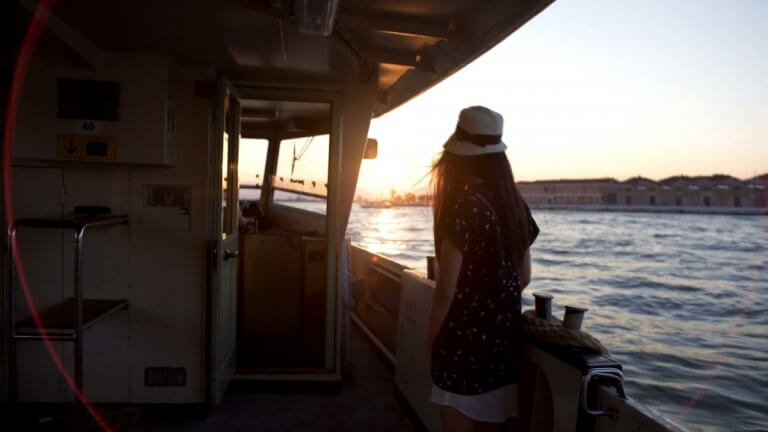
If you can’t decide where to study abroad but want a taste of what the world has to offer then this university ‘campus on the sea’, which spends 104 days a year floating around the ocean stopping off at numerous countries, could be the remedy.
Okay, so before you get too carried away, it is only a semester on the waves and not your entire course but spending a few months learning on the waves sounds pretty good to us!
The ‘Semester at Sea’ programme was founded in 1963 by the Institute of Shipboard Education in the US and is currently sponsored by Colorado State University (CSU), The Times Higher Education reported.
While the programme is rooted in the US, it takes on board students and academics from all over the world. You can expect it to set you back between US$25,000 to US$31,000, depending on the type of cabin you opt for, for the 104-day trip and learning experience.

‘Excuse me, I’m off on my learning trip around the world.’ Source: Giphy
Each trip is totally unique as the courses available on board are reliant on which academics have signed up. When professors sign up, they state which modules from the CSE curriculum they intend to teach, no matter where in the world their university is based.
The programme recently concluded its 124th trip around the world with 534 students from 193 different institutions around the world. Fifty-eight academics, 14 ‘lifelong learners’, 29 family members and 177 crew were also on board.
The ship’s restaurants, theatres, and terraces are all utilised and transformed into lecture halls and classrooms. The ship is even equipped with its own mini library!
Part of the trip’s charm is the fact there is no Wi-Fi or mobile phone reception out at sea so everything professors have to teach with must be pre-downloaded. And as for emails? Academics have access to a special “seamail” account to keep in touch with the outside world should they need to.

Peaceful out on the ocean. Source: Giphy
For students in today’s world, “who are the social media generation and the smartphone generation”, it is “really important for them to cut themselves off from [technology] for a while and […] learn to sit and talk to each other,” Professor of Management and Marketing at the University of Essex Business School Diane Holt, who was on board the recent journey, told The Times Higher Education.
“A lot of people say being on Semester at Sea makes you a better teacher and I think that’s true. I think that it helps you to reconnect with young people, to understand more about them because you become quite close to them,” she said.
From Hawaii to Japan, China to Hong Kong and then on to Vietnam, Cambodia, Myanmar, India, Mauritius, South Africa, Ghana and Morocco, the ship spans a large part of the world in its 3-month voyage.

You will actually have to do SOME work you know? Source: Shutterstock
And it’s not all seen from the top deck or out of portholes. The students go on ‘field trips’ where academics can “weave the port experiences, and the experience of being in different contexts and cultures, into what you’re doing in the classroom,” Holt told The Times Higher Education.
Passengers get to explore many of the countries the ship stops off at along the way and use what they’re learning on board in the real world.
“It gives a level of richness to [teaching] that is really difficult to do without experiential fieldwork,” Holt said.
The passengers on board the German ship, MV World Odyssey, share some “key intense experiences together” as they explore “experiential” learning in a unique environment.
“Classes don’t finish when the room empties – they carry on all the time,” Holt said.
“While the world has become easier to get around, often when you study abroad you go to one place. This allows you to compare the places that you go to.”
Liked this? Then you’ll love…
The world’s best 5 student cities and why they topped the charts







